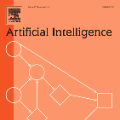
How can humans remain in control of artificial intelligence (AI)-based systems designed to perform tasks autonomously? Such systems are increasingly ubiquitous, creating benefits - but also undesirable situations where moral responsibility for their actions cannot be properly attributed to any particular person or group. The concept of meaningful human control has been proposed to address responsibility gaps and mitigate them by establishing conditions that enable a proper attribution of responsibility for humans; however, clear requirements for researchers, designers, and engineers are yet inexistent, making the development of AI-based systems that remain under meaningful human control challenging. In this paper, we address the gap between philosophical theory and engineering practice by identifying, through an iterative process of abductive thinking, four actionable properties for AI-based systems under meaningful human control, which we discuss making use of two applications scenarios: automated vehicles and AI-based hiring. First, a system in which humans and AI algorithms interact should have an explicitly defined domain of morally loaded situations within which the system ought to operate. Second, humans and AI agents within the system should have appropriate and mutually compatible representations. Third, responsibility attributed to a human should be commensurate with that human's ability and authority to control the system. Fourth, there should be explicit links between the actions of the AI agents and actions of humans who are aware of their moral responsibility. We argue that these four properties will support practically-minded professionals to take concrete steps toward designing and engineering for AI systems that facilitate meaningful human control.
翻译:人类如何能继续控制人工智能(AI)系统,以自主地执行任务?这些系统越来越普遍,产生好处,但也存在一些不理想的情况,其中道德上对其行动的责任不能适当地归咎于任何特定个人或群体。 提出了有意义的人类控制概念,以解决责任差距,并通过建立适当划分人类责任的条件来减轻责任差距;然而,对研究人员、设计师和工程师的明确要求尚不存在,使仍然处于有意义的人类控制之下的基于AI的系统的发展具有挑战性。 在本文件中,我们通过一个反复的绑架思维进程,查明基于AI系统在有意义的人类控制下的四个可操作的特性,从而解决哲学理论与工程实践之间的差距。 我们讨论的是使用两种应用情景:自动化车辆和基于AI的雇用。首先,人类和AI算法相互作用的系统应当有一个明确界定的道德负担范围,在这个系统内,对仍然处于有意义的人类控制之下。第二,系统内的人类和AI代理应当有适当和相互兼容的表述。第三,一个人的责任应当通过一个反复的思考的过程,一个人对基于AI的系统拥有相应的授权和行为进行控制。




